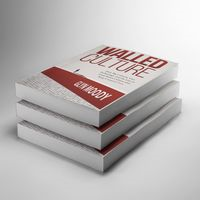The Crumbling Facade of Copyright: A Call for Change
December 26, 2024, 9:57 pm
Copyright is a fortress built on shaky ground. It promises protection and profit for creators, yet delivers crumbs. The system is outdated, a relic of a bygone era. Artists struggle to survive while the industry thrives. This is the paradox of modern copyright.
Take Italy’s Piracy Shield, for example. It’s a digital fortress that has become a national tragedy. The system, designed to protect copyright, is more like a blunt instrument. It blocks access to millions of sites without a second thought. The result? A collateral damage that affects innocent users. It’s a digital minefield, where one wrong step can lead to chaos.
In March, a single Cloudflare address was blocked. This wasn’t just a minor inconvenience. It affected over 40 million domains. Imagine waking up one day to find your website inaccessible. The frustration is palpable. This is the reality of Piracy Shield. It’s a system that operates without checks and balances. Decisions are made in haste, leaving no room for appeals.
The regulators, the Autorità per le Garanzie nelle Comunicazioni (AGCOM), seem oblivious to the chaos they’ve unleashed. They continue to push for stricter measures. The current AGCOM Commissioner believes the system is too lenient. This is a classic case of throwing good money after bad. Instead of fixing the problems, they want to tighten the noose.
The discussions among AGCOM officials reveal a troubling mindset. They prioritize copyright over all else. This could lead to disastrous consequences. A malicious actor could exploit the system. With a few keystrokes, they could wreak havoc on Italy’s digital landscape. The potential for widespread sabotage is frightening. It’s not just about blocking websites; it’s about crippling vital services.
Elisa Giomi, an AGCOM board member, has voiced her concerns. Her warnings echo the fears of many. The Piracy Shield is a ticking time bomb. The lack of oversight is alarming. It’s a recipe for disaster, and the clock is ticking.
Now, let’s shift our focus to the plight of authors. The narrative is just as grim. Copyright is supposed to protect creators, but it often fails them. The myth that artists can thrive under the current system is just that—a myth. The reality is stark. Many successful authors struggle to make ends meet.
Monica Byrne, a writer, shared her experience. She earned a modest sum from her second novel. After earning out her advance, her royalties amounted to a mere $4,370.67 in the past year. This is not a living wage. It’s a drop in the bucket.
Byrne supplements her income through direct patronage. She earns about $43,200 from fans. This requires constant effort, pulling her away from her writing. It’s a juggling act that many creators face. The current copyright model simply doesn’t support them.
The suggestion of a Universal Basic Income (UBI) has surfaced. It’s a lifeline for struggling artists. UBI could provide a safety net, allowing creators to focus on their craft. It’s a concept that has historical roots. State patronage has produced some of the greatest works of art. Why not extend this model to today’s creators?
The copyright industry reaps the rewards while artists are left with scraps. The system is rigged. It favors corporations over creators. This imbalance must be addressed. The current model is unsustainable.
As we look to the future, change is necessary. The digital landscape is evolving. Copyright must adapt or risk becoming obsolete. The Piracy Shield is a cautionary tale. It highlights the dangers of a rigid system.
Artists deserve better. They deserve a fair chance to thrive. The current copyright model is failing them. It’s time to rethink the approach.
In conclusion, the world of copyright is in turmoil. Italy’s Piracy Shield is a glaring example of what can go wrong. Meanwhile, authors like Monica Byrne are fighting an uphill battle. The system is broken, and it’s time for a change. A new model is needed—one that protects creators and fosters creativity. The future of art depends on it.
Let’s dismantle the outdated structures and build a new foundation. One that supports artists and respects their work. The time for change is now.
Take Italy’s Piracy Shield, for example. It’s a digital fortress that has become a national tragedy. The system, designed to protect copyright, is more like a blunt instrument. It blocks access to millions of sites without a second thought. The result? A collateral damage that affects innocent users. It’s a digital minefield, where one wrong step can lead to chaos.
In March, a single Cloudflare address was blocked. This wasn’t just a minor inconvenience. It affected over 40 million domains. Imagine waking up one day to find your website inaccessible. The frustration is palpable. This is the reality of Piracy Shield. It’s a system that operates without checks and balances. Decisions are made in haste, leaving no room for appeals.
The regulators, the Autorità per le Garanzie nelle Comunicazioni (AGCOM), seem oblivious to the chaos they’ve unleashed. They continue to push for stricter measures. The current AGCOM Commissioner believes the system is too lenient. This is a classic case of throwing good money after bad. Instead of fixing the problems, they want to tighten the noose.
The discussions among AGCOM officials reveal a troubling mindset. They prioritize copyright over all else. This could lead to disastrous consequences. A malicious actor could exploit the system. With a few keystrokes, they could wreak havoc on Italy’s digital landscape. The potential for widespread sabotage is frightening. It’s not just about blocking websites; it’s about crippling vital services.
Elisa Giomi, an AGCOM board member, has voiced her concerns. Her warnings echo the fears of many. The Piracy Shield is a ticking time bomb. The lack of oversight is alarming. It’s a recipe for disaster, and the clock is ticking.
Now, let’s shift our focus to the plight of authors. The narrative is just as grim. Copyright is supposed to protect creators, but it often fails them. The myth that artists can thrive under the current system is just that—a myth. The reality is stark. Many successful authors struggle to make ends meet.
Monica Byrne, a writer, shared her experience. She earned a modest sum from her second novel. After earning out her advance, her royalties amounted to a mere $4,370.67 in the past year. This is not a living wage. It’s a drop in the bucket.
Byrne supplements her income through direct patronage. She earns about $43,200 from fans. This requires constant effort, pulling her away from her writing. It’s a juggling act that many creators face. The current copyright model simply doesn’t support them.
The suggestion of a Universal Basic Income (UBI) has surfaced. It’s a lifeline for struggling artists. UBI could provide a safety net, allowing creators to focus on their craft. It’s a concept that has historical roots. State patronage has produced some of the greatest works of art. Why not extend this model to today’s creators?
The copyright industry reaps the rewards while artists are left with scraps. The system is rigged. It favors corporations over creators. This imbalance must be addressed. The current model is unsustainable.
As we look to the future, change is necessary. The digital landscape is evolving. Copyright must adapt or risk becoming obsolete. The Piracy Shield is a cautionary tale. It highlights the dangers of a rigid system.
Artists deserve better. They deserve a fair chance to thrive. The current copyright model is failing them. It’s time to rethink the approach.
In conclusion, the world of copyright is in turmoil. Italy’s Piracy Shield is a glaring example of what can go wrong. Meanwhile, authors like Monica Byrne are fighting an uphill battle. The system is broken, and it’s time for a change. A new model is needed—one that protects creators and fosters creativity. The future of art depends on it.
Let’s dismantle the outdated structures and build a new foundation. One that supports artists and respects their work. The time for change is now.

